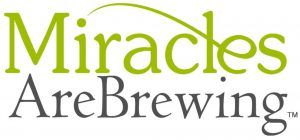If you or anyone you know has struggled with alcoholism or addiction, my guess is that moderation, or lack thereof, is the basis for those struggles. For me, I couldn’t just have a couple drinks and call it a night. It was always balls to the wall, nights that turned into sunrise, the whole bottle instead of a couple cocktails and being that lone soldier that was always the last man standing thanks to a little help from my “white girl” friend.
Since moderation was not an option for me, it needed to be replaced with abstinence. I quickly realized that the only way cleaning my act up was going to work is if I completely stopped altogether. The drugs, alcohol and party girl ways came to a screeching halt. The sober life turned from something I thought I would give a try to see if I could do it, into something that served my higher self in better ways than my drunkenness ever could. Being sober became a way of life. I think so many people embarking on this journey need to be reminded, myself included, that sobriety is a lifestyle.
A lot of people who set out to live sober, initially think of it as temporary. However, I believe this sets the wrong mindset for most people. I’m all for breaking things down into chewable pieces, but at the same time, I’m also for reality checks and balances. If there is a point where we are saying, “I am out of control,” whether fully or slightly, that means moderation is not within our reach. Most likely even if we give sobriety a test run and go back to our old ways, it’s only a matter of time before that pesky problem with moderation resurfaces.
Where there is no moderation, there is a habit.
Where there is a habit, there is a control struggle.
Where there is a control struggle, we have lost our way.
When we have lost our way, we are not being true to our highest self.
So many times, alcoholics and addicts get stuck in this pattern of self-destruction and non-acceptance. As sad as that sounds, it doesn’t mean we planning our suicide (which is not to be taken lightly), but what we are doing is checking out. This mild form of destruction has a gradual build up that turns into something more serious over time. Checking out on life, to me, is a form of self-destruction. It damages our minds, bodies, physical being and it adds stress even though we often think of it as a stress reliever.
We check out on life when things get tough. We check out to get our fix so for those few hours we don’t have to think about anything. We check out on our dreams because when we are hitting the booze or any other form of mind alteration, we are not working on fulfilling our dreams.
We destroy our ability to live in the now by allowing substances to take us out of the now.
We destroy our dreams by not connecting to them when we are drunk, hung-over, tired or chemically fuzzy on our vision of what they even are.
We destroy our present moments with fleeting moments of pleasure that sometimes we don’t even remember.
When the decision is made to go sober, we must understand that moderation is not within our abilities. After bringing awareness into the picture like I discussed a couple weeks ago, next comes acceptance.
We must accept that we are not able to practice moderation.
We must accept that there is a viable problem at hand.
We must take responsibility by getting or asking for help.
We must make dedicated commitments to ourselves.
But most importantly, we must get comfortable with saying,
“I will never drink again.”
Often times it is really hard to muster up the courage to say or to say it and actually mean it. Sobriety is a lifestyle, not a temporary fix.
I had someone ask me last week how to handle a family member that did not understand why they couldn’t just have a couple drinks and be normal. My advice was to explain it from the context that sobriety is not just a choice, it is a lifestyle. Trying to combat why we have a drinking problem is easily replaced when we admit that drinking no longer suits our lifestyle.
In sobriety, we acknowledge our addictive tendencies and our inability to exercise moderation. We also admit that our happiness is not predicated on a drink or any other substance. That we have given up drinking because we want more for ourselves. That our dreams, higher self, goals, aspirations, health, sanity and well-being are more important to us than a “good time,” and while some can manage all of this while drinking, our hats are off to you as we accept that we unfortunately can’t.
When we accept that sobriety is a lifestyle, we move from a place of trying it on for size into wrapping ourselves up in it like a cozy blanket. Sobriety becomes our trusted friend and a comfort that we can rest in.
We don’t need to defend it.
We don’t need to be ashamed of it.
We don’t need to let it separate or isolate us.
We don’t need to be judgmental of others because this is about us and not them.
Rather, we can wear our sobriety with confidence in that what we are doing for ourselves is in our best interest.
Sobriety is a gift we give ourselves.
The best day of your life is the one where you decide to take control of it. That control struggle between you and moderation ends. No more excuses and no more feeling bad because you “did it again.” No more blame game. You realize that you are responsible for the quality of your life and that you need to rely on yourself and God to live it out in ways that are best for you.
That day is a gift. To yourself. That is the day everything truly begins and a newer, clearer and healthier lifestyle emerges along with you.
Sobriety is a lifestyle and you better believe the clarity that comes with it is better than any high you’ll ever get elsewhere.

